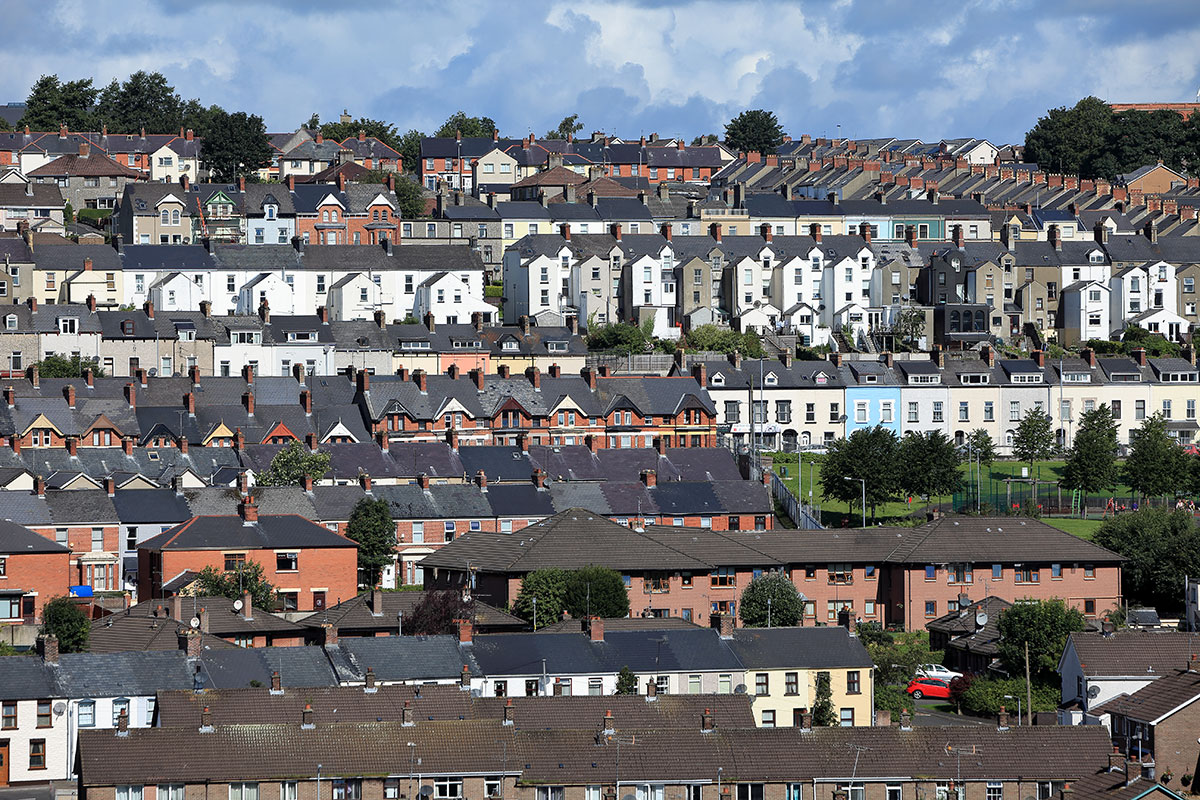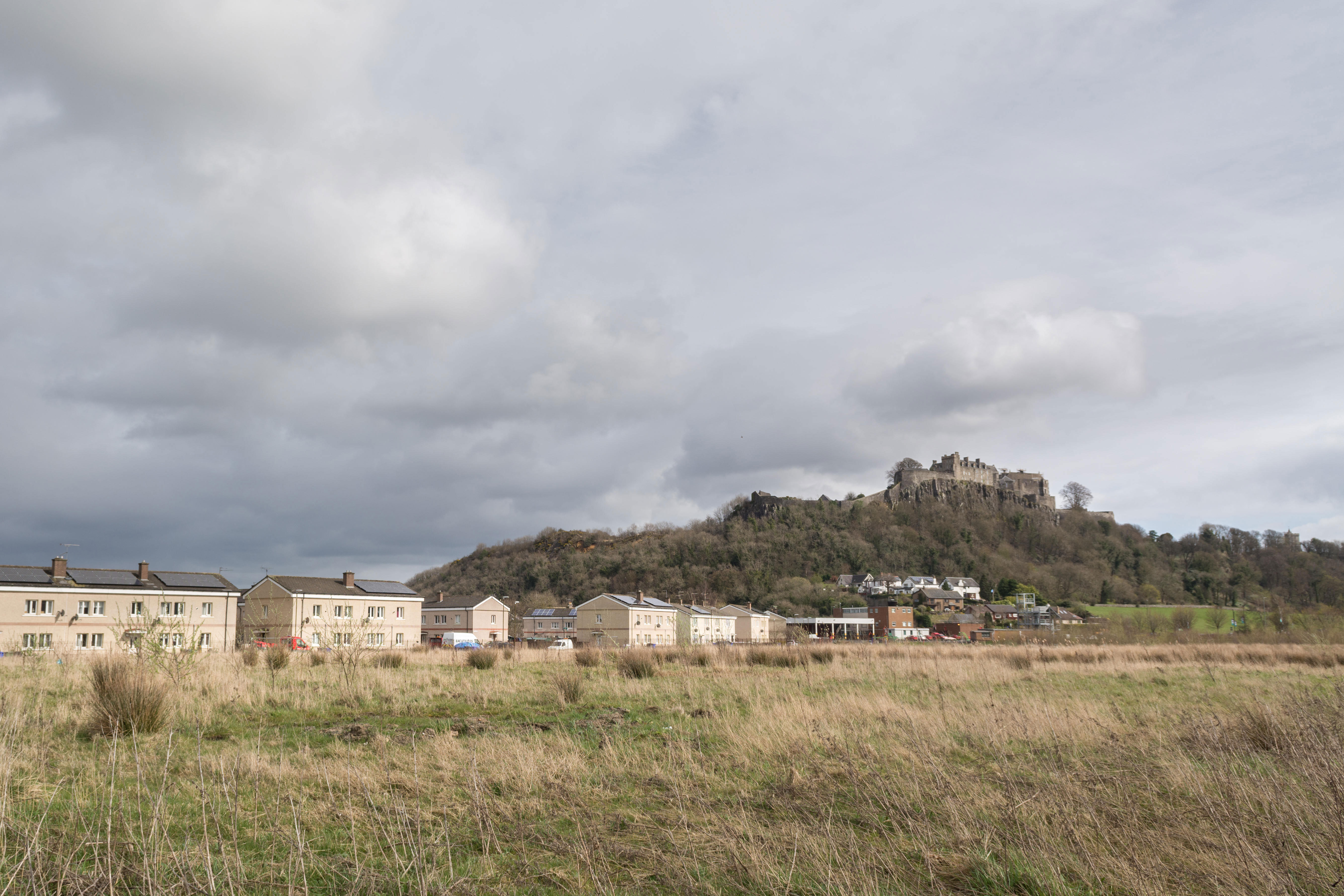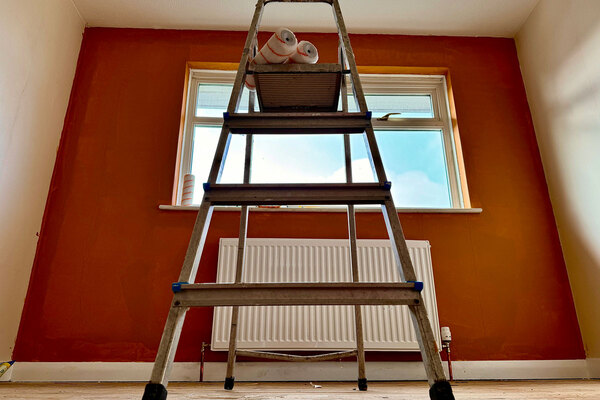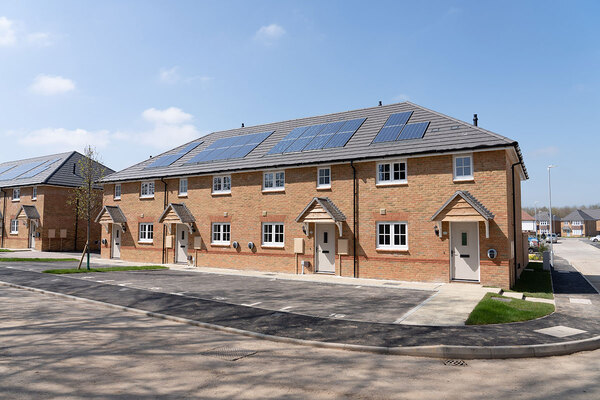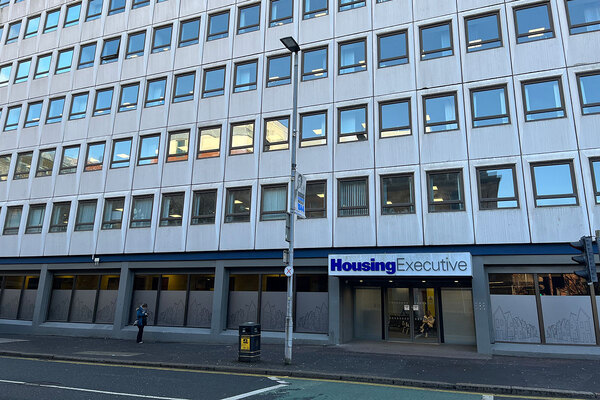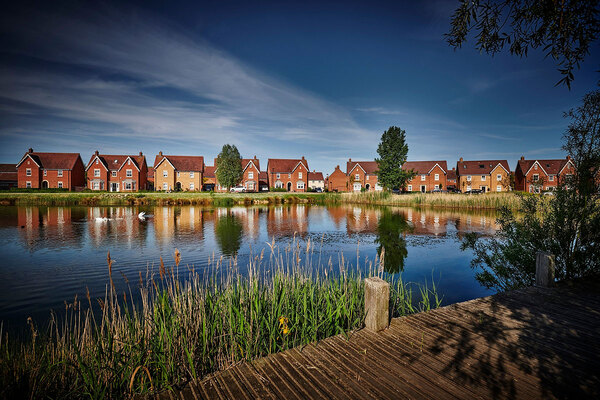You are viewing 1 of your 1 free articles
Northern Ireland Housing Executive rents to increase by 7%
The Northern Ireland Housing Executive (NIHE) will raise its rents by 7% in the next financial year, it has confirmed.
The increase, which will come into effect from 4 April, was revealed in a Department for Communities (DfC) announcement on Tuesday in response to the NIHE’s annual request for a rent increase.
In England, most social landlords indicated they would raise rents by 7%.
NIHE rents have been frozen for five of the past seven years.
Last year, the DfC froze rents in response to the cost of living crisis.
The DfC said this year’s below-inflation increase will provide funding for “essential maintenance, improvements and investment while also keeping the rent affordable for tenants”.
It also said tenant affordability was the department’s “key consideration”.
The NIHE manages the majority of social homes – around 85,000 – in Northern Ireland. The remaining properties are managed by housing associations.
The Northern Ireland Federation of Housing Associations (NIFHA) manages around 58,000 social and affordable homes.
The housing executive said the 7% rise equated an average increase of £4.86 per week, bringing the average rent for a home to £74.35 a week.
Around 78% of NIHE tenants receive full or partial housing benefit support or Universal Credit towards their rent.
Grainia Long, chief executive of the NIHE, said: “We are acutely aware of the financial pressures [our tenants face].
“Working alongside the Department for Communities, we wanted to ensure that the impact on tenants’ affordability was kept to a minimum, while at the same time making sure that we can continue to invest in our homes and provide tenant services.”
She said rents paid for services to tenants, while the decision to increase them “ensures ongoing investment in our tenants’ homes and continued provision of customer and neighbourhood services”.
Ms Long said NIHE rent freezes over the past seven years have resulted in £96m of lost rental income.
Although there are plans to restructure the executive, under its current structure, it is unable to borrow to fund investment in homes and services and must rely solely on rental income.
Ms Long said a further rent freeze would have amounted to a cut in services, whereas the new rent level would improve the NIHE’s ability to invest in its stock and keep tenants “safe, warm and dry, and ensure sustainable levels of pay” for staff.
She told Inside Housing: “It will prevent the current and existing gap from getting wider.
“That gap has grown over the last number of years because of the rent freezes in five years out of seven.
“What the [7% rent increase] won’t do is eat into our investment requirements.
“That investment requirement is £3bn over 10 years, so it’s really significant and, quite frankly, eye-watering.
“That’s something in the longer term that will have to be tackled as we look to revitalise the organisation and free it up to borrow in order to invest.”
Ms Long said the decision on rent increases also took the rate of inflation and rising costs for goods and materials into account.
“Last year we invested over £190m in maintaining and improving our homes and we are on track to increase this investment beyond £200m this year.
“The rent increase will be invested straight back into our houses and our customer services,” she said.
She added that, over recent months, the NIHE had grown its financial inclusion team to provide benefit checks to ensure tenants were receiving everything they were entitled to and to help resolve complex benefits issues.
“The team will advise tenants on other specialist sources of debt advice and other sources of financial support,” she said.
Ms Long urged any tenant having difficulty paying rent to contact the NIHE immediately for help and advice.
Sign up for our Northern Ireland bulletin
Already have an account? Click here to manage your newsletters
